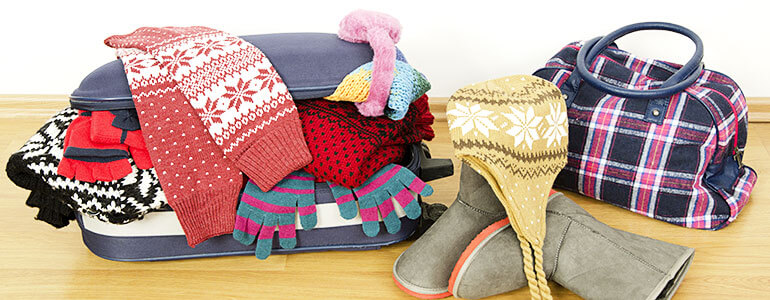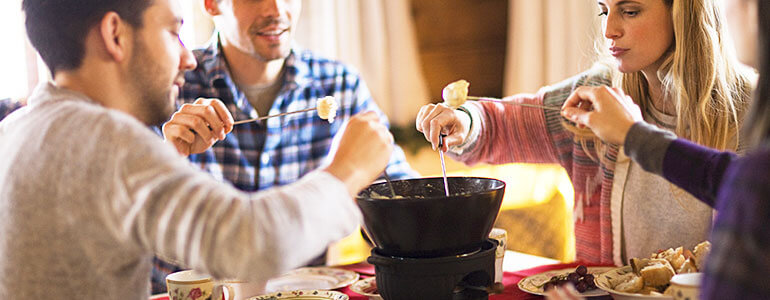
Call 0330 880 3600 Calls may be monitored or recorded. Opening Times.
- TRAVEL INSURANCE
- COVID-19 ENHANCED COVER
- More Options
- Help & Advice
- Existing Customers

Call 0330 880 3600 Calls may be monitored or recorded. Opening Times.

The sad truth is that, however hard they try and keep costs down to a minimum when booking their actual holiday, many novice skiers (and quite a few experienced winter sports enthusiasts, too) end up going well over budget once they arrive at their destination, largely due to the fact they failed to pack smartly.
Always do your research and make sure you know exactly what you will need. Remember it's always far cheaper to buy a pair of sunglasses, an extra pair of thermal leggings, another hat or scarf at home than it is when you're away. Ask the advice of seasoned winter holidaymakers and, if in doubt, throw it in your suitcase. After all, you won't just spend money unnecessarily if you forget to pack something, you'll also waste valuable skiing time looking around the local shops.

One other area in which novice skiers throw away large sums of money is when it comes to hiring ski equipment. Again, you should try and pack as much of your own gear as possible. Once you have all this, then it's time to shop around for the rest of it, including your skis and poles.
As veterans of the slopes know, you will never get the best deal 'mountain-side'. Instead, ignore the hire shops right next to the ski lifts and head away from the snow just a little. Even a short walk can yield big savings, and these can easily add up if you're away for a whole week or more.
Many ski package holidays are half-board, with dinner included, though many are accommodation only. If your deal is an accommodation-only package, then a great way to save money is to have lunch out and then watch the pennies in the evening.
Most bars and restaurants have great lunch offers, giving you the chance to dine out without breaking the bank. Plus, since you're in Europe, many establishments serve lunch until well into the afternoon, giving you the chance to work up a big appetite after a long morning on the slopes.
One other tried-and-tested money-saving tip is to make full use of the breakfast buffet. Don't be afraid to take a couple of bread rolls away with you. Not only will this cut out the cost of buying lunch later, it also means you won't have to head back to the local town or resort to eat, but rather you can dine out on the mountains!

Nothing breaks the bank quite like splashing out in a resort's bars and restaurants after the sun has gone down.
If you do want to get out and about and explore the local bar and restaurant scene, then one good way of saving some money is to ask for the 'bar menu' when dining out. Most establishments will have these and they are almost always the most popular choice among locals. While, as the name suggests, you may not get a big table, you still get great, hearty portions and, just as importantly, the chance to mingle with the locals and soak up the atmosphere.
Similarly, if you do want to hit the town, take full advantage of the happy hour offers most bars have as standard and then, if you still want to make a night of it, sticking to beer and wine rather than cocktails or champagne, will be kinder to your wallet and your head in the morning.
A significant proportion of holidaymakers pay over-the-odds while they're away from home, not least when they're taking winter sports breaks. Few travellers know, for instance, that almost all Swiss resorts offer special guest cards, with which they can enjoy a wide range of discounts and other benefits, including special deals at restaurants, leisure centres and cinemas, and even money off equipment hire.
Make sure that you don't miss out on any of the discounts you are entitled to. Simply ask your hotel receptionist if the hotel has any special partnerships and, if so, make full use of these to save significant amounts of money for the duration of your stay.